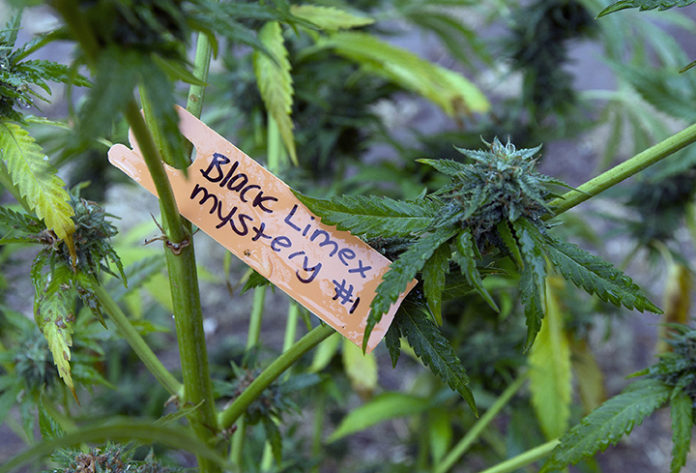
By McKenna Middleton | Page One Editor
On Nov. 8, four states voted to legalize the recreational use and retail sale of marijuana. These states – California, Maine, Nevada and Massachusetts – had each previously legalized marijuana for medical use. The bill was also on the ballot in Arizona, but it did not pass.
The Golden State in particular accounts for a large population of Baylor students. While 68.5 percent of Baylor students are from Texas, the next largest demographic, 6.2 percent, calls California home, according to Baylor Institutional Research and Testing.
Half of the United States has already established legalization of medical marijuana, but California was the first, with voters adopting the revolutionary bill in 1996. In 2010, recreational marijuana was up for legalization in California, but it didn’t pass.
According to the California Official Voter Information Guide, Proposition 64 will mirror alcohol standards.
“Legalizes marijuana under state law, for use by adults 21 or older. Imposes state taxes on sales and cultivation. Provides for industry licensing and establishes standards for marijuana products. Allows local regulation and taxation,” the law states.
Supporters of the proposition cite the benefits of taxing the drug and regulating marijuana standards. Opposition stresses the danger of driving under the influence.
Bryan Duncan, a Drug Recognition Expert and instructor as well as a Glendale Police Department traffic officer, said officers look for clinical indicators such as pulse rate and dilated pupils, in addition to a blood test for PHC levels, to determine whether a person is under the influence of marijuana.
“[Preliminary alcohol-screening] measures blood alcohol concentration … With drugs, we don’t have that ability,” Duncan said. “Based on all those field sobriety tests, I form the conclusion of whether that person is or is not impaired for driving a motor vehicle. There are certain clues that tell me.”
Washington, Oregon, Alaska, Washington, D.C., and Colorado have already legalized marijuana for recreational use.
Since the state of Colorado legalized marijuana for recreational use in 2012, a report from the Rocky Mountain High Intensity Drug Trafficking Area in Colorado revealed the effects of recreational legalization. According to the report, marijuana-related traffic deaths have increased 48 percent in the time since legalization occurred.
“Inherently different is the amount of people that will be able to consume this marijuana,” Duncan said. “There are going to be a lot more people doing it. They’re going to think it’s OK because it’s legal, just like alcohol … We’re going to see a big problem with that. Then we’re going to see a lot of first-time users thinking it’s OK and ultimately getting behind the wheel of a vehicle … We’re going to see a lot more crashes and a lot more incidences on the road and a lot more people dying.”
However, the Washington Post Washington Post reports legalization has not changed marijuana use among teenagers since the law doesn’t affect them.
“I really haven’t seen any significant changes to life in Colorado,” said Centennial, Colo., sophomore James Cox. “The most drastic thing I’ve seen is the response about my home state from people outside of Colorado. There’s obvious changes like the opening of dispensaries and some learning experiences within the industry that people talk about. In the end, I feel like, for most people in Colorado, it had affected them very little if at all.”
Recreational weed may not drastically change the lives of citizens in the eight states that legalized it, but Highlands Ranch, Colo., sophomore Sarah Knight suggests there will be some fiscal effects.
“Other states legalizing recreational marijuana will bring them in more tax dollars, which would be a huge plus. However, it has been very difficult for Colorado to put in regulations pertaining to weed, so I could see that being a problem for other states,” Knight said. “The change actually shut down a lot of marijuana shops because a lot of ones that only sold medical went out of business, whereas the recreational ones spiked.”
In fact, as of January, there were 424 retail marijuana stores as compared to 322 Starbucks in the state of Colorado, according to the Rocky Mountain report.
Cox said the new states adopting the law may impact Colorado as well.
“I could see Colorado having a decreased stigma because of legalization,” Cox said. “As it becomes more and more normal for states to legalize, I think people will have less and less preconceived notions about states that do choose to legalize. Another thing that might happen is a decrease in ‘weed tourism’ — when people come to Colorado to use marijuana legally.”





